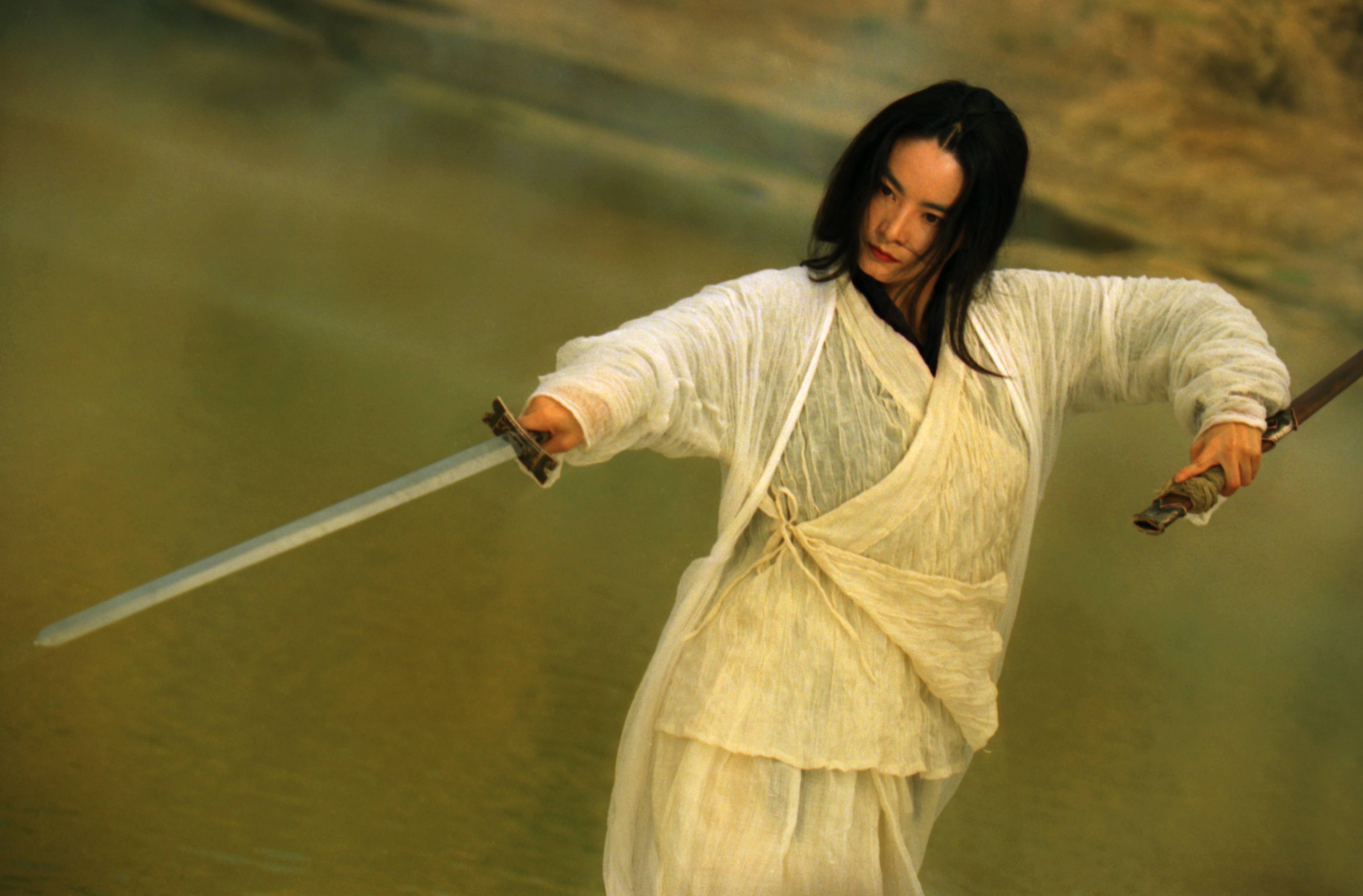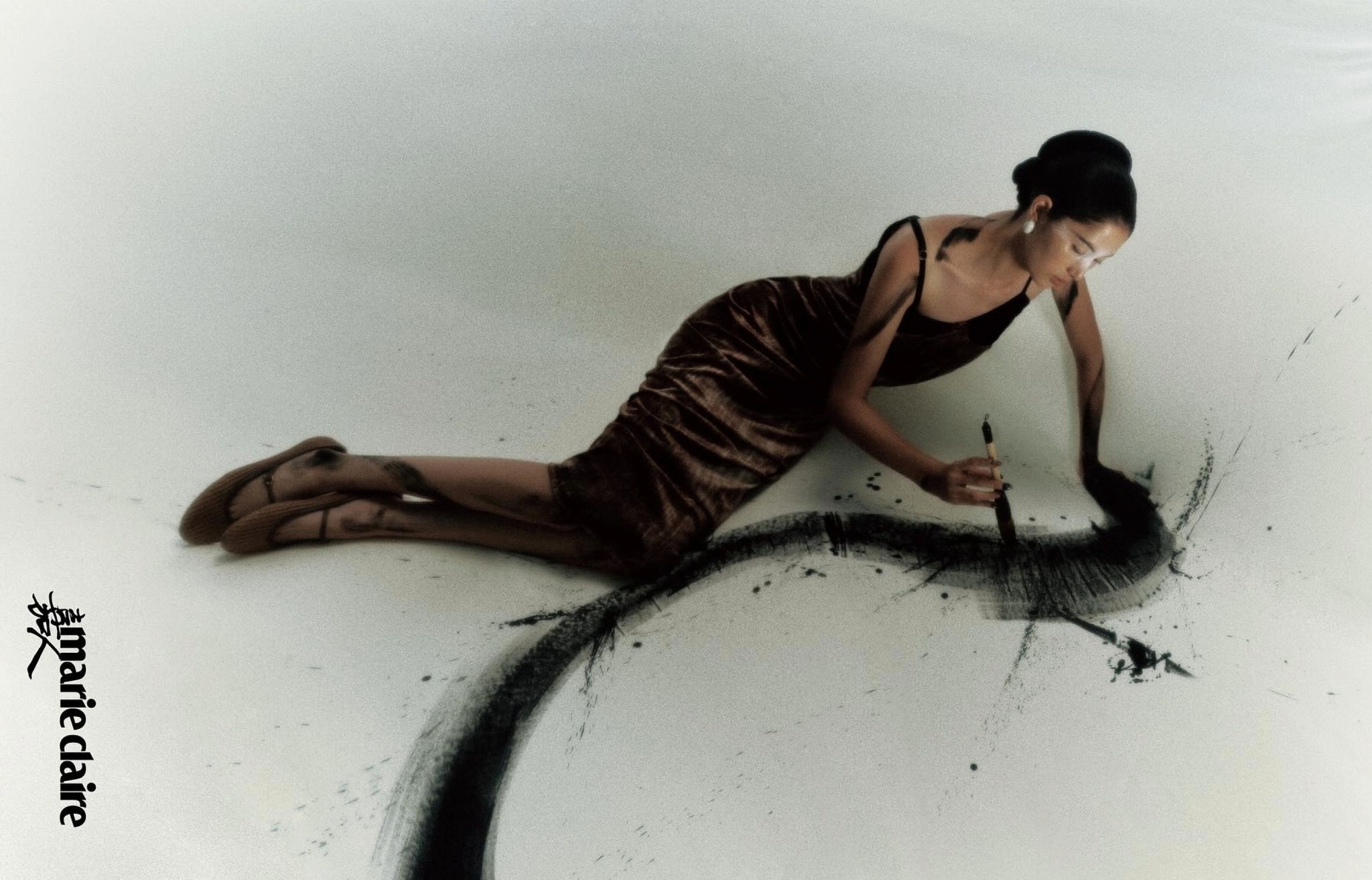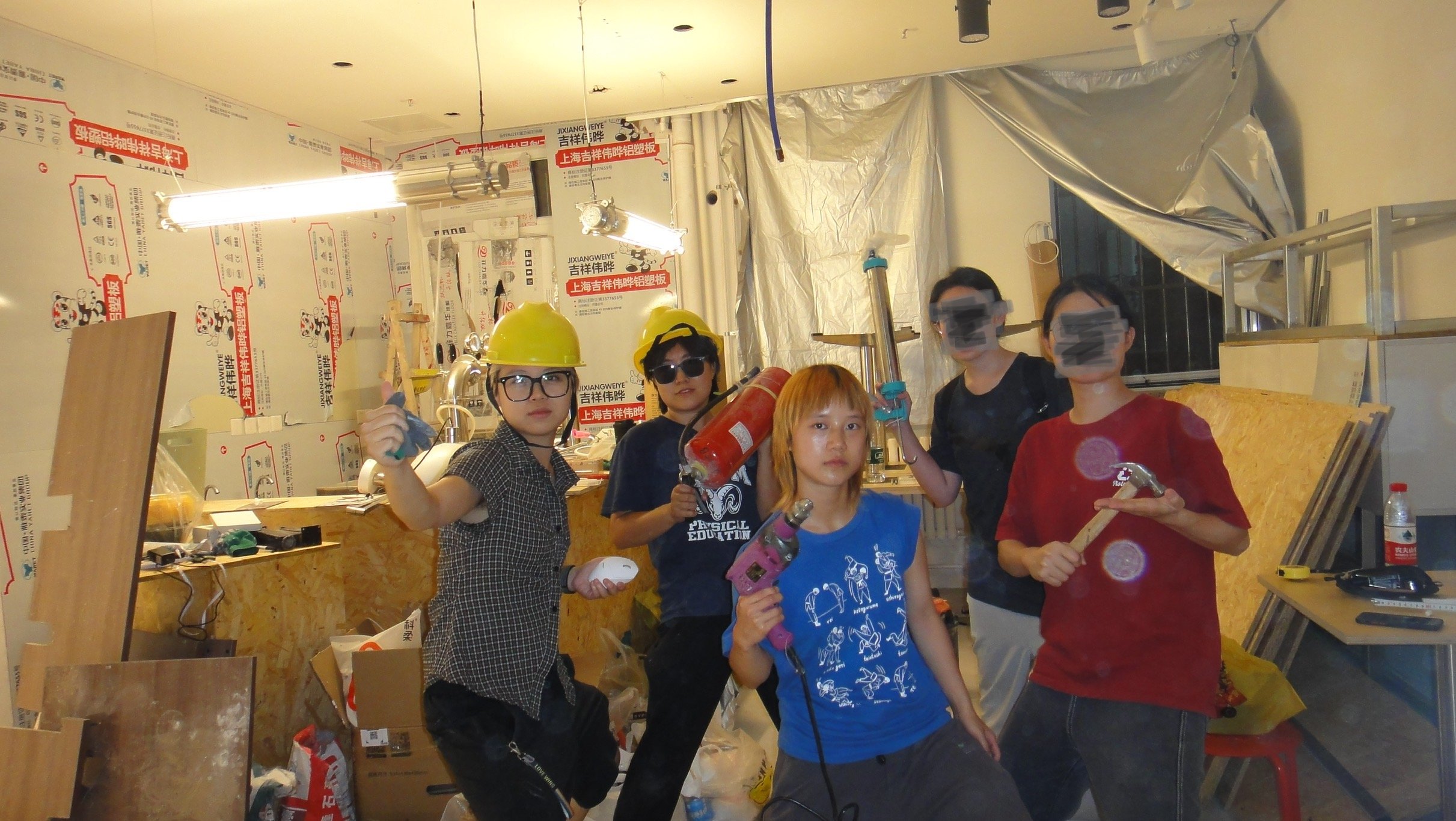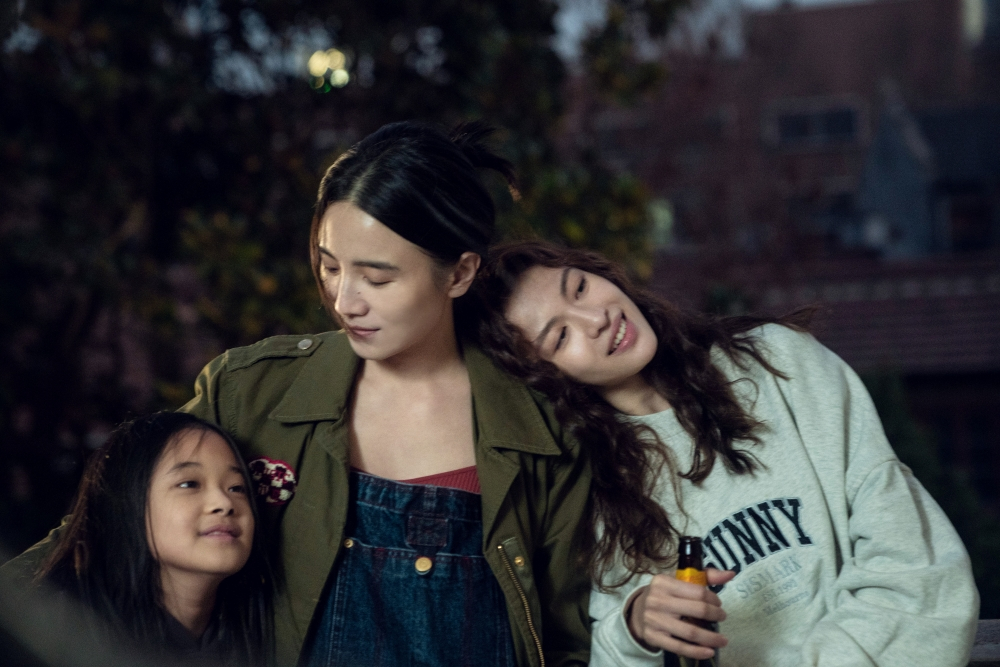From navigating their first periods to grappling with their changing identity, the transition from girlhood to womanhood raises hard questions for most young women.
In rural parts of the country, Chinese NGO Bright & Beautiful finds the journey is often further complicated by patriarchal Confucian traditions and holes in education. This is why they’ve set out to support girls on the path from adolescence to adulthood with a series of alternative education workshops.

“Our goal is to empower young girls to create the change they want to see for themselves,” co-founder Chenxi Ouyang tells us over the phone from her home in Hangzhou. The Guangdong native is one half of the duo, along with Juliet Zheng, behind the alternative education-focused NGO that creates embodied arts programs to help “develop self-esteem and unlock potential” within girls across rural China.
Influenced by social innovation incubator Unreasonable Institute and the Half the Sky movement, the first seed for Bright & Beautiful (B&B) was planted off the back of a semester abroad in 2013. To help raise money and give a voice to marginalized young women in China’s rural areas, the pair launched a short documentary and “story T-shirt” project — a collection of tees embellished with handicrafts by young village women featuring a QR code linked to short documentary films sharing their stories.
Ouyang and Zheng added the idea for embodied arts educational programs after one of their early research trips to the China’s southwestern Yunnan province, where they found a number of girls they spoke to didn’t feel they had the same opportunities as their male counterparts. Ouyang explains:
“A lot of people mistakenly think that China has achieved gender equality. Compared with many developing countries, China is relatively better now, but that doesn’t mean inequality doesn’t exist.”
Seven years on, the core goal of female empowerment remains the same, but the organization has evolved into a three-person team filled out by hundreds of volunteers that offers holiday camps and weekend workshops for girls aged 12 to 18.
Particularly in rural areas of the country, they have found the historic adage of “zhong nan, qing nü” (重男轻女) or preferring sons over daughters, lingers today. “There are a lot of families who still value boys more than girls, and many of the young girls we speak to don’t actually like being girls — or they don’t think they should like being a girl,” says Ouyang. “They also don’t think they can achieve as much being a woman, which restricts a lot of their potential.”
Hoping to address this imbalance, Bright & Beautiful works in rural schools and with community groups primarily around Zhejiang and Guangdong provinces, using art, theatre, movement and lots of open discussion to encourage the girls to ask who they are, what they want, and how to unlock their full potential. So far, they’ve reached over 2,000 students.

Founders Juliet Zheng (left) and Chenxi Ouyang (right)
The team started out with four-day art camps that explore different themes each day: body, emotions, relationships and courage. “It’s all about sharing knowledge in a very interactive way,” explains Ouyang. Offering a side of learning that she finds is “undervalued in both society and the educational system,” the experiential sessions encourage the girls to harness their feminine energy and think through their feelings, while teaching them skills and values to understand and protect their rights.
“Regardless of external resources or finances, we’ve found that if a woman is feeling confident or powerful, she’s better equipped to conquer the challenges or difficulties in her way,” she says. “That’s why we think it’s so important to focus on education.”
A spin-off from the camps, regular one-day Rites of Passage workshops, designed especially for adolescents entering puberty, delve into essential topics that remain taboo or stigmatized. Covering everything from sexual education to menstrual health to bodily autonomy, the programs are “all about addressing the challenges and problems that girls may encounter growing up,” says Ouyang, adding:
“For real empowerment, our bodies and sexuality are things we should talk about at a young age.
“Otherwise it’s so easy for people to be corrupted by what they see online or by other people telling us what we are or what we’re not.”
Taking the menstrual health exercises as an example, she explains that rather than flicking through a page in a textbook, B&B goes “into depth about changes that happen during puberty, why we have periods, how to take care of yourself when you’re menstruating and why you should celebrate it instead of being ashamed of it.” Activities such as experimenting with sanitary pads — by coloring or soaking them to see how they change — and creating art that highlights the physical changes in women’s bodies are designed to pull these topics out of the shadows and cement them as a part of the normal conversation.
“You can really see the change after the workshop,” says Ouyang. “When we first play the video about periods, a lot of the girls cover their eyes or look embarrassed… But after going through the exercises they generally feel much more comfortable talking about menstruation, and the fact that they have periods. It’s quite transformative to see.”

For B&B, opening up a dialogue about developing healthy relationships and heavier topics like self-protection against sexual assault and harassment is also paramount. Alongside a need for more comprehensive sex education, she finds that societal pressures from negative labels like “leftover women” to “popular electronic novels and soap operas that still deliver this message that girls are objectifiable” all play a part in creating a narrative that women don’t have choices.
Related:
 Meet the “Leftover Women” Exploring Marriage and Divorce through TheaterWhy four theater-makers spun Ibsen’s “A Doll’s House” on its head in modern day ShanghaiArticle May 11, 2020
Meet the “Leftover Women” Exploring Marriage and Divorce through TheaterWhy four theater-makers spun Ibsen’s “A Doll’s House” on its head in modern day ShanghaiArticle May 11, 2020
According to a UNESCO-supported study that surveyed 30 secondary schools from six Chinese provinces and municipalities, more than half of students believed that “a woman cannot refuse to have sex with her husband” and only 50 percent agreed “girls should have a say as to who and when to marry.” Covering everything from experimenting with posture and tone of voice to help tap into different sides of their personality to developing skills for drawing boundaries, “these workshops are a good opportunity for us to share a different outlook,” she continues. “We want the girls to know that it’s your body, you have the power and the option to say no and choose what you do with it.”
To keep momentum high and continue raising awareness in what’s been a tough year shaped by the Covid-19 pandemic, Ouyang explains that one of their biggest focuses for the moment is to train more leaders and volunteers to run workshops and camps in order to expand the number of girls they can reach. They’re also building on collaborations with like-minded partners to keep pushing the word out there, including menstrual-health focused social enterprise LUÜNA that helps raise funds and donates sanitary towels to their students.
Lirong Quan, a former student who recently signed up as a B&B volunteer, explains how the lessons she learned in the camp continue to impact her today. “It made me more open-minded and piqued my curiosity about the world… It also changed something in me, it’s hard to put it into words, but I can feel I’m better at managing my emotions and communicating them.”
Another program graduate, who asked to remain anonymous, noted that while growing up people around her told her “it doesn’t matter if girls study hard” and “not to bother”, but the program helped give her a push to pursue her goals. After graduating from high school, she left home and travelled to another province for college. “[B&B] introduced me to new possibilities and my potential. It inspired me to keep going to see what else is out there for me.”
Related:
 Wǒ Men Podcast: Sexual Assault in Rural ChinaHow underlying problems in some rural and undereducated areas in China can lead to cover ups and confusion around sexual abuseArticle Oct 29, 2019
Wǒ Men Podcast: Sexual Assault in Rural ChinaHow underlying problems in some rural and undereducated areas in China can lead to cover ups and confusion around sexual abuseArticle Oct 29, 2019
With increasing access to technology across China, the team is also branching out into online content via streaming sites like Douyin that are popular with youth to make their programs accessible countrywide and beyond. One of the online initiatives, “#HerStory,” is a four-month series of biweekly webinars aimed at students and young professionals from all backgrounds that invites changemakers and pioneers from across the globe for a “transnational dialogue” discussing issues like gender equality, women’s empowerment and how to impact social change.
Whether it’s empowering girls with skills and values via embodied arts sessions or sharing knowledge online, the endgame for Bright & Beautiful remains the same. “We want women to know who they are, to truly understand themselves and their bodies, relationships and emotions,” Ouyang concludes. “Only then can you know who you really are instead of what society and people around you expect you to be.”
All images: courtesy Bright & Beautiful


















